- Home
- Linda Lael Miller
Moonfire
Moonfire Read online
LOOK FOR
LINDA LAEL MILLER’S
STUNNING FRONTIER NOVEL
Springwater
AND HER DELIGHTFUL NEW SERIES FROM
POCKET BOOKS
SPRINGWATER SEASONS
Four dazzling tales in four months!
Rachel Savannah Miranda Jessica
AND DON’T MISS HER OTHER MARVELOUS ROMANCES
BANNER O’BRIEN
CORBIN’S FANCY
MEMORY’S EMBRACE
MY DARLING MELISSA
ANGELFIRE
DESIRE AND DESTINY
FLETCHER’S WOMAN
LAURALEE
MOONFIRE
WANTON ANGEL
WILLOW
PRINCESS ANNIE
THE LEGACY
TAMING CHARLOTTE
YANKEE WIFE
DANIEL’S BRIDE
LILY AND THE MAJOR
EMMA AND THE OUTLAW
CAROLINE AND THE RAIDER
PIRATES
KNIGHTS
MY OUTLAW
THE VOW
TWO BROTHERS:
THE LAWMAN & THE GUNSLINGER
She Stood Fast as Reeve Untied Her Camisole, and Then Peeled It Away from Her Flesh …
“Maggie,” he said, in a low and ragged voice, and then she felt Reeve’s breath on her face and instinctively she tilted her head back to greet his mouth with her own. His forceful but infinitely gentle hands entangled themselves in her hair and he kissed her …
As the soul-shattering kiss continued, Maggie felt the straining power of him and trembled for the want of it, even as she recoiled inwardly in fear.
Maggie was powerless to protest, much less flee, and when she felt herself being lowered to a soft bed, she offered no resistance. Reeve’s voice was thick, hoarse with needs Maggie couldn’t even begin to comprehend. “You’re a virgin, then, aren’t you, lass?”
Books by Linda Lad Miller
Banner O’Brien
Lily and the Major
Corbin’s Fancy
Emma and the Outlaw
Memory’s Embrace
Caroline and the Raider
My Darling Melissa
Pirates
Angelfire
Knights
Desire and Destiny
My Outlaw
Fletcher’s Woman
The Vow
Lauralee
Two Brothers
Moonfire
Springwater
Wanton Angel
Springwater Seasons series:
Willow
Rachel
Princess Annie
Savannah
The Legacy
Miranda
Taming Charlotte
Jessica
Yankee Wife
A Springwater Christmas
Daniel’s Bride
Contents
Prologue
Chapter 1
Chapter 2
Chapter 3
Chapter 4
Chapter 5
Chapter 6
Chapter 7
Chapter 8
Chapter 9
Chapter 10
Chapter 11
Chapter 12
Chapter 13
Chapter 14
Chapter 15
Chapter 16
Chapter 17
Chapter 18
Chapter 19
Chapter 20
Chapter 21
Chapter 22
Chapter 23
Chapter 24
Chapter 25
Linda Lael Miller
This book is a work of historical fiction. Names, characters, places and incidents relating to non-historical figures are either the product of the author’s imagination or are used fictitiously. Any resemblance of such non-historical incidents, places or figures to actual events or locales or persons, living or dead, is entirely coincidental.
An Original Publication of POCKET BOOKS
POCKET BOOKS, a division of Simon & Schuster Inc.
1230 Avenue of the Americas, New York, NY 10020
www.SimonandSchuster.com
Copyright © 1988 by Linda Lael Miller
All rights reserved, including the right to reproduce this book or portions thereof in any form whatsoever. For information address Pocket Books, 1230 Avenue of the Americas, New York, NY 10020
ISBN: 0-671-73770-8
First Pocket Books printing May 1988
10 9 8 7
POCKET and colophon are registered trademarks of Simon & Schuster Inc.
Cover illustration by Morgan Kane
Border design by Marlene Moore
Printed in the U.S.A.
For Crystal Harworth,
who taught me to hear
the sweet, mystical music that words make
Prologue
Dublin—September 1867
A DEFT FLIP OF JAMIE’S WRIST CAUSED THE GOLDEN WATCH to spin at the end of its chain. With a glint of triumph in his ice-blue eyes, he caught the gentleman’s time-piece in one grubby palm and grinned.
Reeve, two years older than his brother at fourteen, lacked Jamie’s taste for petty larceny. For the sake of the woman and the priest over near the fire—they were about the business of death—he kept his voice low. “Do you want to be transported, you idiot? It’s one thing to pinch an onion or a turnip, but a dandy’s watch?”
Jamie swallowed hard and glanced toward their mother’s cot, which had been set as close as possible to the pitifully inadequate coal fire in the grate. “Herself is wantin’ medicine,” he said with lame defiance.
“She’s past that,” Reeve retorted. “There’ll be no need of medicine, and we both know it.”
The priest was giving last rites by then, and both Jamie and Reeve watched and listened in silence, hating their helplessness and their hunger. Through it all Callie McKenna lay motionless, her eyes closed.
At last Father McDougal turned weary-eyed from Callie’s cot, his face gaunt and deeply lined. He seemed to carry the troubles of all Ireland on his thin shoulders. As he approached, he reached one slightly tremulous hand into the pocket of his frayed coat.
From his perch on the edge of the table Jamie skittered to his feet. “Is she—”
Father McDougal shook his balding head. “Not yet, lad, but I don’t look for Callie to last the night, bless her soul.” He paused to cross himself, and then sighed. “She’s in God’s hands now.”
Reeve scowled and folded his arms across his chest; he’d hear no talk of God or his mother’s coming happiness in heaven. Where had God been when Callie McKenna was left to scour the scummy floors of taverns and mend the gowns of fancy ladies who didn’t think her fit to spit upon?
“Any work to be had on the docks these days, then?” the priest asked pointlessly. He already knew the dismal answer, for there was no work anywhere in Ireland, not in the cities and not on the farms.
Reeve lowered his dark head. He was a sturdy lad, broad in the shoulders and strong despite the hunger that had gnawed at his belly for as long as he could remember. “No work,” he muttered. It didn’t seem right to mention his plans for the future, not now, with his mother dying.
The elderly priest cleared his throat; Reeve glanced up and saw that Jamie still clutched the watch in one filthy hand. “Stealin’ again, are you, boyo?” he demanded more in despair than in anger. “Shameful thing, that. Wrong in the eyes of God.”
Jamie’s answer was quick and flippant, as Jamie’s answers tended to be. “God ain’t lookin’, now, is He? Not toward me and not toward me poor mum and not toward the whole of Ireland!”
The old man sighed and then, after a moment’s hesitation, drew his hand from his pocket and opened his palm to reveal two bits of tarnished brass sh
aped like coins and punched through at the top. When neither lad responded, he pressed one into Reeve’s hand and one into Jamie’s and hastily left the cottage.
In the gloom Reeve examined the coin. Thanks to the nuns of St. Patrick’s parish, he could read a little, and he made out the words: Blessed is he that considereth the poor.
Shame scalded the back of his throat and throbbed behind his blue-green eyes. “It’s a bloody beggar’s badge!” he hissed.
Jamie was quiet; both brothers listened to the labored breathing of their mother. She was cold and sick and she was going to die hungry—just as she’d lived.
In a burst of fury and helplessness Reeve hurled the badge across the room. It made a clinking sound as it struck the fireplace.
Jamie set his jaw and started toward the door. “I’ll be back,” he said softly, speaking not to Reeve but to their mother, “and I swear by all that’s holy that I’ll bring back bread and tea and whatever else I can find.”
“Good lad,” Callie replied weakly, a woman wandering in a dream. “He’s a good lad, my Jamie. A good lad.”
“You’re going to beg?” Reeve demanded of his brother in a rasping undertone.
Jamie held up the fancy watch and gave it another arrogant spin. It glinted in the gloom of that tiny hovel. “Aye, Reeve,” he answered tightly, “if it comes to that, I’ll beg, but first I’ll be about makin’ a fair swap with the grocer.”
A cold premonition quaked in the very core of Reeve McKenna’s soul. “Don’t do it, Jamie. Sure as the saints, this time they’ll collar you.”
Jamie’s expression was hard, and for the moment he was a man, not a boy. “I’ll not see me mother die hungry, Reeve.”
Reeve made his way to the hearth, searching for the beggar’s badge he’d tossed away only moments before. He’d take it around, to this house and that—for his mother he’d do it, and to save Jamie from the law. He was the elder brother, the task rightly fell to him, intolerable as it was.
“Your luck’s sure to run out,” he said, searching the floor around the hearth. Just as he caught a glimmer of firelight on the brass, the door of the cottage closed with a smart click and Jamie was gone.
Reeve scrambled across the room, wrenching open the door. The stench of that narrow Dublin street came at him and mingled with the night chill. “Jamie!” he bellowed into the dense fog that covered Dublin like a yellowed muslin shroud. “Jamie, come back!”
It was too late. There was no sign of Jamie; the lad was as quick with his feet as he was with his hands.
Reeve swore and closed the creaky door, running one hand through his hair as he turned back to the dying woman and the dying fire and all his dying hopes.
“Is there word come from your da, then?” Callie asked in a bright voice. She sounded almost like her old self. “It’s off to America we’ll be, one fine day soon.”
Near tears, Reeve knelt beside his mother’s cot and took one of her thin, work-roughened hands into his own. “No word yet,” he said softly.
Callie’s eyes, sea-green like her eldest son’s, were fixed on the shadowy ceiling of the hovel where Marcus had left her so many years before. “Never a letter,” she said on a long sigh. “Ain’t it strange there was never a letter?”
Reeve let his forehead rest against hers for a moment and drew a deep, steadying breath. “Da wasn’t much for writin’,” he answered gently after a very long time. Privately, he believed his father was either dead or the worst sort of scoundrel, but of course he couldn’t say that. Indeed, he wished he’d pretended that there was a letter from America, with passage money for them all. What harm would it have done to lie to Callie now?
It might have been a mercy.
“I’m dying, ain’t I?” Callie asked, and her eyes lost their dreamy quality. She was lucid and full of misery.
It was hard for Reeve to speak, impossible for him to lie. He struggled for a few moments before offering a tentative “Father McDougal says you’ll go to heaven, sure and straight.”
Callie smiled at the prospect. Despite years of suffering, years of waiting and fruitless hope, she believed. Reeve couldn’t recall a time when her faith had so much as wavered, though his own was long gone. “Oh, yes,” she said. “I’ll go to heaven.” Her dark hair, without even a strand of gray, fanned out over her coverless pillow, and she arched one finely etched eyebrow. “But what of you and Jamie? Where will you go—to America?”
Reeve shook his head. He could no longer keep back the truth. “I’ve got a berth on a sailing ship, Ma,” he said, and even now he felt a singular excitement at the prospect. “A whaler. Her home port is in New South Wales, at Sydney Town.”
Callie’s aquamarine eyes widened. “New South Wales! What of Jamie? Will you take him with you?”
Reeve remembered his interview with the captain of the Sally Dee—though it had taken place that afternoon, it seemed a thousand years in the past—and felt true despair. The captain had said there was need of only one cabin boy aboard the ship. He’d have a gander at Jamie, and if he looked fit for the sea, there might be a place for him on the next voyage. Beyond that the man could promise nothing.
“I won’t leave without him,” Reeve vowed solemnly. It was a promise he meant to keep, even if he had to sacrifice his own plans and dreams.
Callie looked relieved, and Reeve wondered if she knew about Jamie’s thieving, despite their efforts to hide it from her. “He’s a fine boy, my Jamie,” she said, “but he ain’t so sensible as you, Reeve. He needs lookin’ after.”
Reeve permitted himself a smile and nodded. “That he does.”
“You’ll see to him?”
Reeve squeezed his mother’s hand. “I’ll see to him,” he affirmed.
Callie gave a small sigh and closed her eyes to sleep.
Almost an hour passed before Jamie was back, dodging into the cottage, his arms filled with loot. He’d brought tea, a whole loaf of bread still warm from the oven, a cold joint of mutton, and a small bag of coarse white sugar. After casting a look of shame and defiance in his brother’s direction, he dropped the food on the table and crossed the room to shovel the last of the coal onto the fire.
Unsettled and anxious, Reeve took the well-used kettle into the street and filled it with water from the neighborhood pump. Back in the cottage, he set it on the hob to boil.
Jamie was slicing the mutton with quick, deft strokes of his pocket knife. “How is Mum?” he asked after a long silence.
Reeve caught his thumbs in the pockets of his tattered trousers. “Lookin’ for a letter from Da, she was. Still, after all these years.”
Jamie continued to slice the meat for their supper. “You think he’s dead?”
“That or just forgetful,” Reeve replied with quiet bitterness.
Marcus McKenna’s fate in far-off America was a touchy subject between them, and they rarely discussed it. “He had to serve seven years for his passage,” Jamie reminded his brother evenly.
“He’s had that, Jamie, and four years more. If Da’s alive, he’s decided not to bother bringin’ a wife and two sons over from the Old Sod.”
Jamie’s jawline tightened, then relaxed. He was a handsome lad, with his wheat-colored hair and pale blue eyes. “Have you ever thought of goin’ to America yourself, Reeve? I mean, if Da could work for his passage, so could we.”
Reeve thought of the beggar’s badge, still lying on the floor somewhere, a painful reminder of his limited options. “They kept slaves there once,” he said. Just the thought made his skin crawl. “Had a war over it too.”
Jamie popped a bit of mutton into his mouth and chewed thoughtfully. “You wouldn’t be a slave—all that’s over now. Workin’ off your passage ain’t the same at all.”
“For a time it is. A man has a master. He’s owned, like a carriage or a calf.”
“For the likes of us,” Jamie pointed out, tearing the fragrant loaf of bread into hunks, “it might be the only way out of Ireland.”
“Aye,�
� Reeve replied halfheartedly, thinking of the berth he’d been offered on the Sally Dee. Sooner or later he was going to have to speak of it, but the right time hadn’t come yet.
When the water came to a whistling boil on the hob, Reeve poured it into the chipped crockery pot. While the savory brew steeped, Jamie gently awakened his mother.
Callie’s hands trembled as she reached for the plate her son extended. There was a dazzled expression in her eyes and she cast a quick glance around the cottage, as if thinking that she might have passed on to some other, better life without noticing.
Callie ate little of the meal, but enjoyed two full cups of sugared tea. Later that night, while her sons slept on their pallets on the cottage floor, she died.
She was buried in a pauper’s grave, without even a coffin, but Father McDougal was there in the drizzling rain to say the holy words. Reeve listened in a numb rage, hating not only the priest, but the God he served as well. It would have been a comfort to believe that angels had met his mother’s soaring spirit and carried her to a place of peace and plenty, but he couldn’t quite manage that.
Nor could he weep as Jamie did. There was nothing to do but accept the dismal reality of Callie’s death just as it was.
At the edge of the churchyard the grocer waited, flanked by two soldiers of the English crown. “That’s him,” the fat merchant cried through the downpour. “That’s him what give me the watch!”
Reeve started to step between Jamie and the soldiers, but the priest grabbed at his arm. Before he could take the blame on himself, Jamie owned up, his face wet with tears and rain.
“It’s me you want,” he said.
“Blighter,” one soldier muttered to the other as they bound Jamie’s wrists behind him. “Sticky-fingered, these micks, every last one of ’em!”
“Wait!” Reeve choked, shaking free of the old priest’s grasp. “It’s a lie—I’m the one that took the gentleman’s watch—”
The second soldier laughed. “Too late for that, lad.”

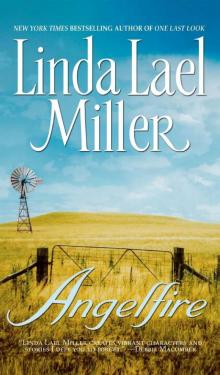 Angelfire
Angelfire Moonfire
Moonfire The Yankee Widow
The Yankee Widow The Cowboy Way
The Cowboy Way Country Strong--A Novel
Country Strong--A Novel Forever and a Day
Forever and a Day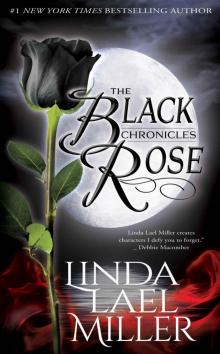 The Black Rose Chronicles
The Black Rose Chronicles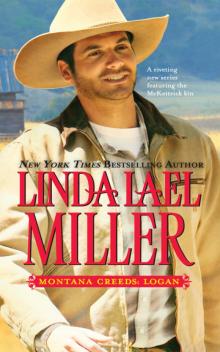 Montana Creeds: Logan
Montana Creeds: Logan My Darling Melissa
My Darling Melissa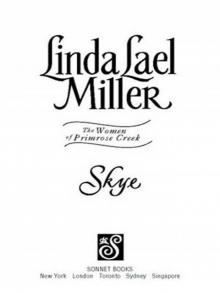 Skye
Skye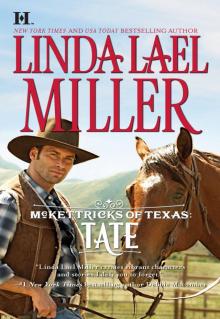 McKettricks of Texas: Tate
McKettricks of Texas: Tate Springwater Seasons
Springwater Seasons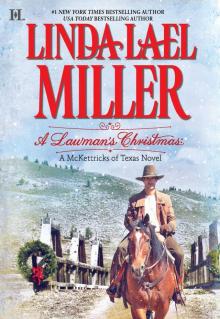 A Lawman's Christmas
A Lawman's Christmas Sierra's Homecoming
Sierra's Homecoming![Parable, Montana [4] Big Sky Summer Read online](http://i1.bookreadfree.com/i/03/22/parable_montana_4_big_sky_summer_preview.jpg) Parable, Montana [4] Big Sky Summer
Parable, Montana [4] Big Sky Summer One Last Weekend
One Last Weekend A Stone Creek Collection, Volume 2
A Stone Creek Collection, Volume 2 Tonight and Always
Tonight and Always Fletcher's Woman
Fletcher's Woman A Snow Country Christmas
A Snow Country Christmas The Last Chance Cafe
The Last Chance Cafe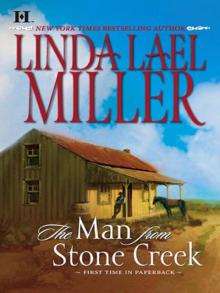 The Man from Stone Creek
The Man from Stone Creek Wanton Angel
Wanton Angel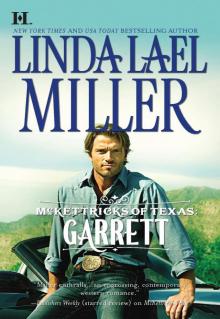 McKettricks of Texas: Garrett
McKettricks of Texas: Garrett Memory's Embrace
Memory's Embrace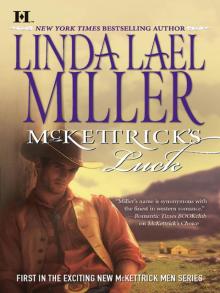 McKettrick's Luck
McKettrick's Luck Pirates
Pirates Big Sky River
Big Sky River Willow: A Novel (No Series)
Willow: A Novel (No Series) The McKettrick Legend: Sierra's HomecomingThe McKettrick Way (Hqn)
The McKettrick Legend: Sierra's HomecomingThe McKettrick Way (Hqn) Glory, Glory: Snowbound with the Bodyguard
Glory, Glory: Snowbound with the Bodyguard Two Brothers
Two Brothers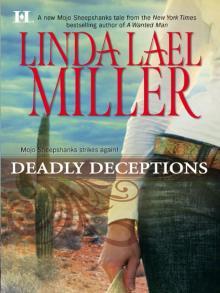 Deadly Deceptions
Deadly Deceptions Big Sky Secrets
Big Sky Secrets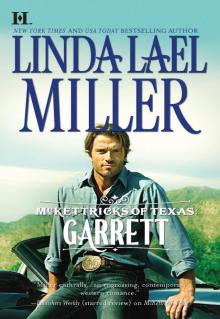 Garrett
Garrett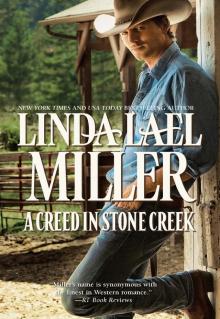 A Creed in Stone Creek
A Creed in Stone Creek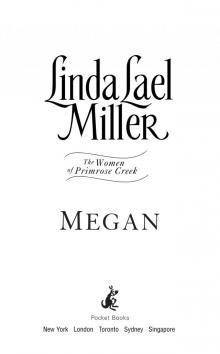 Megan
Megan McKettricks of Texas: Austin
McKettricks of Texas: Austin Knights
Knights High Country Bride
High Country Bride More Than Words Volume 4
More Than Words Volume 4 Glory, Glory
Glory, Glory Daring Moves
Daring Moves Lily and the Major
Lily and the Major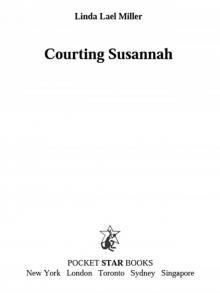 Courting Susannah
Courting Susannah Banner O'Brien
Banner O'Brien Big Sky Mountain
Big Sky Mountain Linda Lael Miller Bundle
Linda Lael Miller Bundle McKettrick's Pride
McKettrick's Pride A Stone Creek Collection Volume 1
A Stone Creek Collection Volume 1 A Wanted Man
A Wanted Man Big Sky Country
Big Sky Country The McKettrick Legend
The McKettrick Legend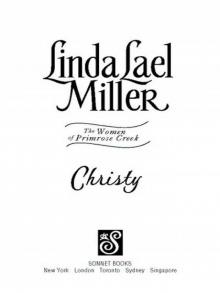 Christy
Christy McKettrick's Heart
McKettrick's Heart Resurrection
Resurrection Arizona Heat
Arizona Heat Secondhand Bride
Secondhand Bride Snowflakes on the Sea
Snowflakes on the Sea Montana Creeds: Tyler
Montana Creeds: Tyler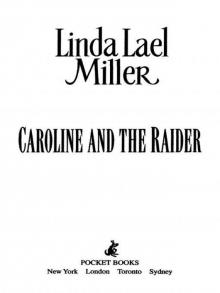 CAROLINE AND THE RAIDER
CAROLINE AND THE RAIDER A Proposal for Christmas: State SecretsThe Five Days of Christmas
A Proposal for Christmas: State SecretsThe Five Days of Christmas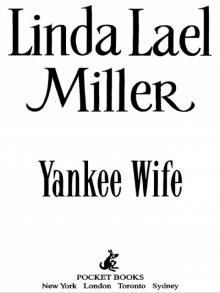 Yankee Wife
Yankee Wife Linda Lael Miller Montana Creeds Series Volume 1: Montana Creeds: LoganMontana Creeds: DylanMontana Creeds: Tyler
Linda Lael Miller Montana Creeds Series Volume 1: Montana Creeds: LoganMontana Creeds: DylanMontana Creeds: Tyler The Christmas Brides
The Christmas Brides McKettricks Bundle
McKettricks Bundle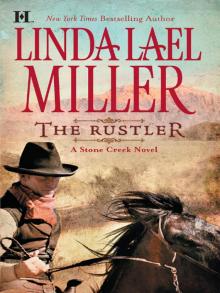 The Rustler
The Rustler Here and Then
Here and Then Only Forever
Only Forever Once a Rancher
Once a Rancher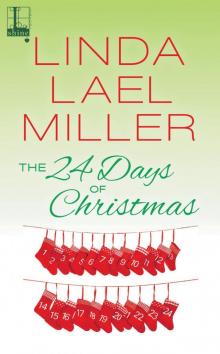 The 24 Days of Christmas
The 24 Days of Christmas Big Sky Wedding
Big Sky Wedding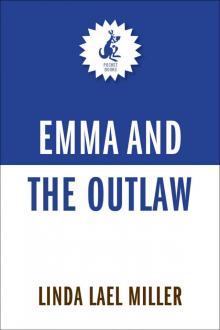 Emma and the Outlaw
Emma and the Outlaw Princess Annie
Princess Annie Wild About Harry
Wild About Harry That Other Katherine
That Other Katherine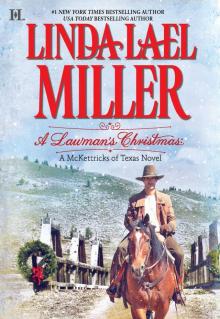 A Lawman's Christmas: A McKettricks of Texas Novel
A Lawman's Christmas: A McKettricks of Texas Novel Just Kate: His Only Wife (Bestselling Author Collection)
Just Kate: His Only Wife (Bestselling Author Collection)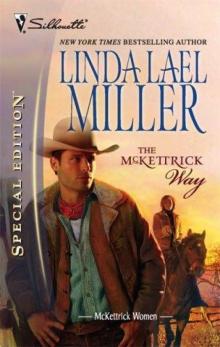 The McKettrick Way
The McKettrick Way Part of the Bargain
Part of the Bargain Taming Charlotte
Taming Charlotte Holiday in Stone Creek
Holiday in Stone Creek One Last Look
One Last Look Always a Cowboy
Always a Cowboy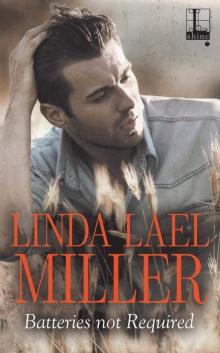 Batteries Not Required
Batteries Not Required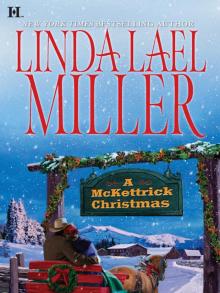 A McKettrick Christmas
A McKettrick Christmas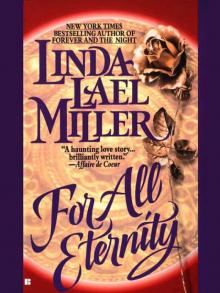 For All Eternity
For All Eternity The Marriage Season
The Marriage Season Corbin's Fancy
Corbin's Fancy The Creed Legacy
The Creed Legacy Springwater Wedding
Springwater Wedding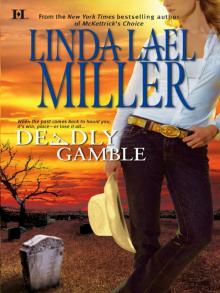 Deadly Gamble
Deadly Gamble Austin
Austin Creed's Honor
Creed's Honor A Creed Country Christmas
A Creed Country Christmas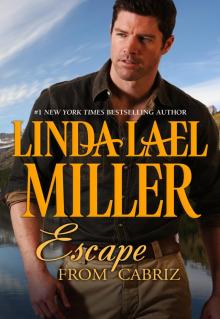 Escape from Cabriz
Escape from Cabriz There and Now
There and Now The Bridegroom
The Bridegroom State Secrets
State Secrets Bridget
Bridget